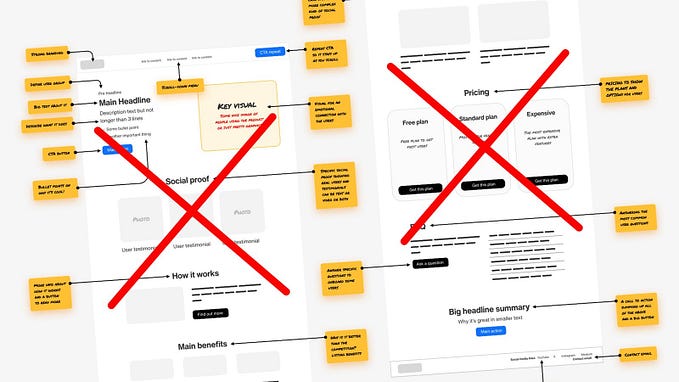Multipliers and thunder thieves: two opposite forces in companies

I recently changed my job; I moved into a new company looking to find what, at some point, I felt I lost in my former position. Somehow, I started to feel disconnected from many of my duties and the overall environment. This feeling of discouragement was eye-opening.
Was it the people? The projects? the culture? The company? I don’t know, but I’m confident that I was delighted on many levels of my work, but not so much in other matters. During the last weeks, I started to believe that everything I thought I knew about my leadership skill was gone; I began to question myself if the decision of accepting that job in the first place was the correct call in my career; it was a hard time.
Despite the good things and the not so much, this recent movement has made me think and reflect on why we make these decisions in our professional lives. Maybe something in me is not ok, and I haven’t figured yet? (I want to believe it isn’t), or it might be something beyond our control that cannot be visible in plain sight?.
Trying to figure out these questions, I started by looking back at my career, searching for some answers. The first thing that came to my mind was that thin line between the things we love to do and the things we HAVE to do. Of course, that would explain why I felt that way in my former job, but somehow I thought it incomplete because you can be doing the things you love to do, but still, you are not exempt from being exposed to a hard professional discouragement.
Companies’ love/obligation dilemma is only a tiny part of something “harder, bigger, and stronger,” like any blockbuster movie in its second part.

I dare say that companies and industries are the battlefields of two forces that can influence you to settle down in one place for an extended period and build a work-life or cause you to flee immediately in search of new options.
1- The multipliers

(The effect of enhancing work and human skills to unveil a more significant potential)
Julie Zhuo defines a multiplier as a good manager’s positive effect in the well-known book: The making of a manager. “The role as a manager is to improve your team’s purpose, people, and process to get a high multiplier effect on your collective outcome.”
This text illustrates a part of my point in this lecture, but it only bases its premise on team results (which is the book’s point). However, I would like to take it to the next level; This effect is not only a consequence of being a good manager or practicing good leadership in teams; instead, I think it is a broader behavior in all spheres of work.
The force of the multipliers improves your skills to become a better collaborator on several levels; it starts from the company’s reputation to each collaborator’s way of work.
Multipliers at a company level
Before accepting a new job position or aspiring to a new one, we often wonder if our targeted company is an excellent place to work. So we talk to friends, do some research, or even seek now for the “great place to work certification” because working in a proper environment is a significant value to take into account when deciding to move. Reputation at this level matters; from this point, you can predict if, once inside the company, you’ll be able to have a voice, propose new ideas, and be part of something bigger that will keep you motivated every day. If your prediction is optimistic, you may love this new adventure; you will work for a multiplier company.
A piece of advice on this:
“Not always a big name means great experience.”
We’re not suited for all projects, so if for some reason you entered a big company, and your experience was not what you expected, you have the right to keep searching for a new one that matches your needs and professional expectations.
Multipliers at a culture level
You can begin to build a notion of culture within the company from the recruiting process. Approaching people is not easy, and this step is a reliable source for measuring the level of “work health” you will face.
Once you went through it, was this step something that connected with you? was the company’s purpose clear to you? Do you see yourself in a medium-long term identified with the company’s new job challenge and vision? If your answer is yes, you can feel comfortable taking this step. Being part of a company is the same that being part of a community; To be an active asset of the group, you need to understand and proclaim the inner rules, processes, and actors to generate value with peers eventually.
Multipliers at a management level
“Employees don’t Leave Companies; They Leave Managers. — Jason Pilgrim.” “There are no bad teams, only bad leaders — Jocko Willink.” There is nothing more accurate than this. Being a multiplier in this stage means everything for you as a collaborator or team member. Of course, you might run into a terrible boss even with a good company name and sound cultural values. But if you can find a multiplier leader, be confident that this will detonate on you a massive potential to grow in several aspects. Here are some clues that indicate that you are in good hands:
- You are not a resource; you are a teammate; This is fundamental, but starting from a human side, a good leader will identify you as a unique being and, therefore, will recognize your skills. Then, for sure, there will be a tailored growth plan that will take you through the process of enhancing you as a professional.
- Autonomy equals innovation. If you feel supported and well guided when being creative to solve challenges, your leader wants to discover your inner potential and that you gain experience from it. When you feel the liberty of creating your point of view, you will realize that you are expanding your decision-making skills and, therefore, a keen sense of problem-solving.
- Two-way feedback as a team foundation: Whether a team of two or a large group, a leader who focuses on improving team health through employee feedback will create a positive and trusty work environment, and team members’ creativity, communication, and proactivity will flow as a natural outcome. Structures like this generate a multiplier effect that will achieve better results, and also it might be contagious to other groups within the company.
Some recommended articles:
Here’s What Makes an Amazing Boss
Multipliers at a team level
Finally, the relationship between peers is essential. Beyond having a nice boss, the way you communicate and interact with other team members will determine, in part, the quality of your outcomes and the level of happiness during your time within a company. Having real partners to fight together any challenge or menace is a clear sign that you are in a multiplier team; here are some clues of this positive effect:
- No toxic feedback or attitude: Everything is about making things better; all ideas build something extraordinary, from design critiques to peer feedback. There are no bad intentions at all.
- No rockstars allowed: Every team member has a collaborative role, and no one is above others. From seniors to juniors, the team’s dynamic is one: achieve the main goal as a unit. Supporting each other will generate a feeling of protection and bravery to tackle new challenges.
- Cruise mode: Finally, this is the stage of a perfect workflow; no worries about communications, processes, or roles; everything flows, and everyday tasks feel easy and pleasant to make.
2- The thunder thieves

(The effect of downgrading work and human skills to block any potential)
Like my story above, many of us might sometimes feel trapped in a daunting bubble that doesn’t easily break; that results from a thunder thieve effect, and let me tell you, this discomfort also lives at all work levels.
Thunder thieves at a company level
Pay attention to what people say; any sign of a toxic environment here should alert you to making the next step. We can be agents of change, but sadly, it is almost impossible to change an entire corporation. Please stay away from companies with this image; likely, they do not have an excellent cultural environment. Everything tends to worsen because people with not-so-good intentions manage to settle in these environments.
Thunder thieves at a culture level
Generally, this is not evident as a rule of an organization, but be aware of how some issues related to people are getting solved. For example, have you heard about any case of a complaint about some inappropriate behavior in some department? And it is not solved? Or was it not etically well done?. Let me tell you; this is not a good place to stay a minute.
Thunder thieves at a management level
At this stage, having a terrible boss would drive you into high-stress levels. Sometimes, no matter how much effort you put into your job, it will not be enough good. For multiple reasons such as micro-management, lack of empowerment, the lousy environment inside and outside the group will only create a harmful environment from which the only way to get out is to change the area or company.
Some recommended article: Signs You Might Be a Bad Manager.
Thunder thieves at a team level
How confident do you feel working with your teammates? If the answer is not primarily positive, this may indicate that you are working in a thunder thieve team. Not focusing on achieving goals or generating value for projects will only make you spend energy on alternative problems that do not create any value. Envy, grudges, and unfair competition will create an atmosphere of discouragement; At this point, you are wasting your potential and happiness on something that is not worthy.
My conclusion.
Everything is about perspective; We all aren’t the same. Like some other lectures I’ve written, this one is about my experience as a designer. Maybe it is not the absolute truth in business, but one thing is for sure, we always have to deal with good and evil, and companies are not exempt from this confrontation. It will depend on fulfilling our inner expectations and avoiding the environment we consider toxic or building an excellent creative, collaborative, and respectful atmosphere for us to grow and shine.
#ShortStoriesOfMyLifeAsDesigner








